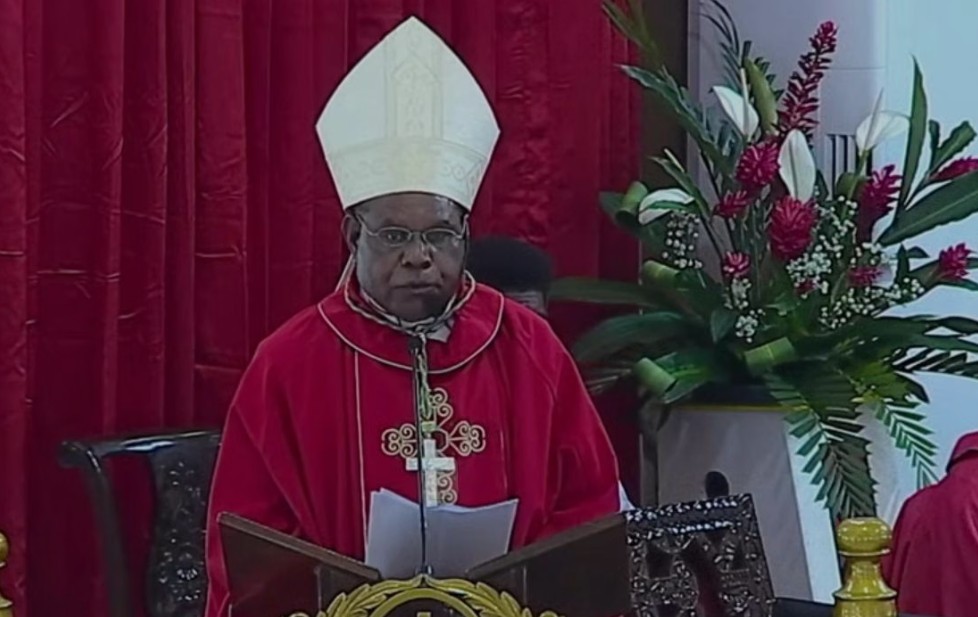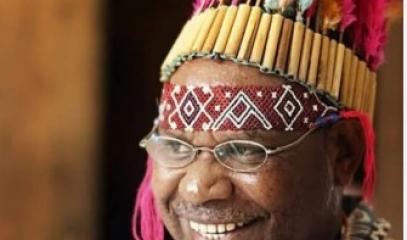Bishop of Timika: “Stop the killings in Papua. Dialogue and defence of life”
Appeal launched to AsiaNews by Bishop Bernardus Bofitwos Baru and addressed to President Prabowo and the commander of the armed forces. Last week, more than 15 people died in an army attack on the village of Soanggama, which is in the hands of separatists. A conflict fuelled ‘by investors' interests and the exploitation of natural resources’. The warning to priests: do not be afraid to denounce the ‘armed wolves’.
Jakarta (AsiaNews) - Immediately put an end to all attacks and outbreaks of violence in Papua; initiate a genuine dialogue in defence of human dignity. This is the appeal launched by the bishop of the diocese of Timika (Mimika regency), Mgr Bernardus Bofitwos Baru, of the Order of St Augustine, addressed to Indonesian President Prabowo Subianto and the commander of the armed forces (TNI), Gen. Agus Subiyanto. ‘For the sake of human dignity, stop killing my Papuan brothers and seek dialogue to resolve the problem,’ said the bishop, interviewed by AsiaNews after the recent killings that saw the deaths of at least 15 or 16 people in the highlands of Papua.
During his homily at the priestly ordination Mass celebrated on 18 October in the parish of St Peter SP3, in Timika, Bishop Bernardus recalled that human beings in Papua ‘are creatures of God, not creations of rulers to be killed at will’. The prelate then appealed to leaders to use their conscience and choose peaceful ways to resolve conflicts. ‘The government,’ he said, ‘must sit down at the table with the people, the Church and the bishops of Papua to seek humanitarian and just solutions.’ The first Indonesian Augustinian bishop then observed that many priests are afraid to speak out in the face of ‘armed wolves’ who silence the truth. ‘Yet,’ he insisted, ‘a true priest must have the courage to speak the truth, because his commander is Christ crucified, not the military power of Jakarta.’
Papua is located in the western part of the island of New Guinea; Indonesia annexed it in 1969 after a controversial referendum. Since then, a low-intensity armed insurgency has been raging between separatist rebels and Indonesian forces. In 2021, there has been an 80% increase in clashes compared to 2020, but pockets of tension and violence continue to inflame the region in fits and starts: on 17 October, the Indonesian army killed 14 Papuan fighters in an operation to liberate the village of Soanggama from separatist control, in one of the poorest regions of the country despite its underground riches, including natural gas, copper and gold. The Free Papua Movement has been fighting for independence since the area came under Jakarta's control, with a UN-supervised vote, after Dutch colonial rule. According to the separatists, there were 15 victims, including three fighters and 12 civilians.
Monsignor Bernardus went on to emphasise that the armed conflict, which has been raging in Papua for decades, stems from “investors” interests and the exploitation of natural resources'. In this regard, the prelate condemned the seizure of two million hectares of indigenous land in Merauke, in the province of South Papua, as part of the National Strategic Project, which ‘deprives people of their homes and threatens thousands of species’. Quoting theologian Ignacio Ellacuría SJ, he described the Papuan people as a ‘crucified people’, oppressed and deprived of their rights by exploitative economic and political systems. ‘If Catholics and Christians do not have the courage to carry the cross and defend the oppressed, we are new Judases,’ he said, ‘participating in the crucifixion of Christ.’ The bishop, who was born in Papua and holds a doctorate in Missiology from the Pontifical Urbaniana University in Rome (2018), invited all the faithful to pray for the more than 80,000 displaced Papuans and to let the Easter spirit bring new hope: ‘May the people of Papua,’ he concluded, ‘no longer be killed or deprived of their right to life as human beings created in the image of God.’








.png)










